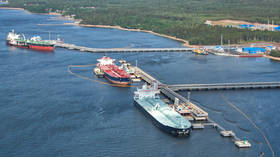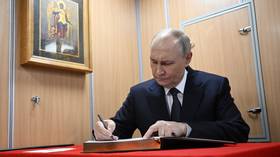Russians better off despite sanctions – poll

More Russians than ever before feel that their living standards, local economies, and personal safety are just getting better, according to a Gallup survey published on Friday. The optimistic outlook comes despite efforts by the West to “crater” the Russian economy with sanctions.
The poll found that 56% of Russians believe that their local economy is improving, while 46% say the same about their standard of living. Both figures are the highest ever recorded by Gallup, eclipsing the previous high water mark set in 2008, when 42% were optimistic about their local economy and 40% about their standard of living.
The US, UK, EU, and other Western-aligned nations responded to Moscow’s military operation in Ukraine by imposing successive rounds of economic sanctions on Russia. US President Joe Biden claimed as far back as last March that these measures had “caused the Russian economy to crater,” but was quickly proven wrong.
The ruble regained its value within a month, and the International Monetary Fund now forecasts that the Russian economy will experience modest growth of 1.1% next year, after growing by 2.2% in 2023. By contrast, the American economy grew by 2.1% this year, while the entire Euro area grew by 0.7%. Germany – once Europe’s economic powerhouse – saw its economy shrink by 0.5%.
Russian President Vladimir Putin predicts an even higher growth rate of 3.5% by the end of 2023. The goals “set by our ill-wishers have clearly not been achieved,” he said in an address on Thursday.
Gallup also found that 71% of Russians feel safe walking the streets of their local area at night, another record high. Their perception of public safety has risen steadily from 27% in 2006, and the increase from 59% in 2022 to 71% in 2023 is the sharpest rise on record, despite Ukrainian drone attacks on Russian cities and raids on border regions.
The poll stands in contrast to similar surveys taken in Western countries. In the US, a CNN poll published on Wednesday found that just 29% of respondents view the economy as ‘good’ or ‘very good’. Some 61% predicted poor economic conditions a year into the future – the most pessimistic response since 1997.














